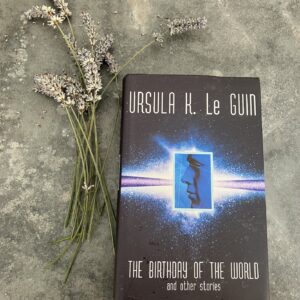
A nod to my last post themed on nature, and a recommendation following a gorgeous day out in Dorset at Abbotsbury Swannery. Tipping a dramatic coastline, this unique and natural wildlife habitat is the only place in the world where you are able to walk through the heart of a managed colony of free-flying, nesting Mute Swans. And what a place to live – it’s no wonder they choose to stay.




And after a big breath of avian sea air, it’s back to the realm of stories with Comic Con. Star Wars is clearly a favourite, and the full size array of robots through the franchise. They may be made of metal, but they are far from expressionless.

The emergence of AI and its interplay in the art world is a big topic. From droids, space travelling humanoids, alien terminators, and colonising machines set to take over the world, robotics and AI have long featured in our stories. Recently I was introduced to a fascinating series, with a whole new take on this vast subject:

The Subjugate; by Amanda Bridgeman
In a watchful world where humanity is complemented by AI, cities are ruled by security companies, yet crime and murder are still commonplace. The story features two detectives, Salvi Brentt and Mitch Grenville, each one an interesting character in their own right, with intriguing complex backstories and a dynamic that at times complimented the dis-ease of the thriller, which I found compelling.
The setting of the story is well-drawn, an imagined future where ethical limitations of AI are subtly observed, with talking robo-cleaners and dedicated AI prefilling data of transcriptions and interviews, yet always with a human hand to sign them off to ensure their eligibility in court. Yet some pullaway communities are resisting technological advances. Just outside the city, the unincorporated community of Bountiful is one of the leading pullaway communities, and one of the most religious. Founded in 1934, it is a town built on religion, populated by the Children of Christ. There’s no internet, mobile phones or computers, although it does have a close relationship with the nearby Solme Complex. The Solme Complex houses violent criminals called Subjugates, who undergo extreme treatments involving religion and technology, and include painful chemical castrations and implanted neural technology which can be used to shock into submission. There are interesting themes around redemption, forgiveness and freedom from sin, with aptly disturbing methods. Subjugates who are successfully converted over the course of several years of ‘treatment’ are called Serenes. They are released unsupervised but with the neural implants recording electrical activity in the brain. When heightened emotion is detected, it triggers a visual alarm in the silver crown worn by Serenes, called a halo.
Following the discovery of a young woman’s body in the community of Bountiful, the two detectives head out to investigate. A discovery of biolume at the scene, bacterial natural lighting, leads them to the Solme Complex, with Subjugates the prime suspects. As the investigation continues, further layers of the world are revealed, with the relevant question of ‘how far is too far’ with technology explored through inventive examples, including augmented realities where avatars are free to play out forbidden desires. There are questions around, just because you can, should you, and are we all slaves to something whether it be religion, technology, or law enforcement? And there are themes around how this all connects to freedom and control. In a bid to be free, do we just end up creating further structures, disciplines and controls? Is freedom truly possible in a world of corruption? I enjoyed the exploration of these big questions, the intriguing future dystopian world, and contrasting characters leading this fast-paced sci-fi thriller that kept me wanting to know more.
The Sensation; by Amanda Bridgeman
Salvi Brentt had killed a man, and he had almost killed her. Under psych review she was cleared for active duty and has a new partner, the department’s dedicated AI, Riverton. A case opens when the body of 34-year-old Devon Barker is found in Sensation. A woman, Myki Natashi, is discovered unconscious in the bedroom by police, who had responded to a domestic disturbance. Myki doesn’t know what happened, and only remembers dinner the night before with Devon. Vincent Calabri was seen in the area, a man with a small rap sheet in the employ of detective Francis Melon, who is Myki’s ex-boyfriend of 3 years. Melon works in the financial industry, a known acquaintance of John Dorant, affording him loose ties to organised crime, and friends in high places. This case is also coupled with the murder of undercover officer, Caine, and the disappearance of the Chief’s daughter into a drug gang.
As in the first book of the series, I enjoyed the character arcs, and in particular the main character, Salvi, a complex woman with a past, and strength to face herself and get the job done. She is still seeing her old partner, Mitch, which was an interesting aspect of her character development in the first book, and continues to add interest in this sequel. Previously, Salvi had faced two serial killers, and one was still alive: Edward Moses, Subjugate-52, locked up in the Solme Complex. Subjugate-52 has been asking for Salvi. He hasn’t received what was promised him after helping Salvi in the last case. He was promised to become a Serene, but Salvi disappeared on him, renegading on her word. Now she is concerned what level of deception he is capable of, and how he might manipulate access to the wider world.
The development of the role of AI in this sequel was particularly interesting. Talking robo-cleaners have names, and the AI, Riverton, is humanised through friendly interactions, showing apparent consideration to which Salvi responds in kind. Hackers cause chaos to evidence by wiping CCTV footage, and more sinister, they hack neural implants that leave a brain wide open to abuse and full-on takeover. A broad range of available technology sees a further reduction in human/human interaction, with drone surveillance, VR headsets and tasers, robot dancers, and holographic forms. Neural tech is also injected in drug form, rendering a person entirely helpless to being used as a sex droid. There are interesting questions here, since the drug lowers a person’s inhibitions and heightens sexual desire, leading to sex. But this is under the influence of a drug, illegally administered without consent, and therefore constitutes rape.
Tech used to keep subjugates in line can equally be used to keep slaves in line, adding a further, compelling sinister edge. Salvi is on a deadly mission to uncover truths, and among the truths are: where do we draw the line, who is good and who is bad or is society just lurking somewhere between, what is right and wrong and who has the right, who is hunter and who is prey? Technology affords power, and with it comes responsibility, but is anyone responsible enough? These are questions I am left with, making this an inspiring read.
What are you reading?







